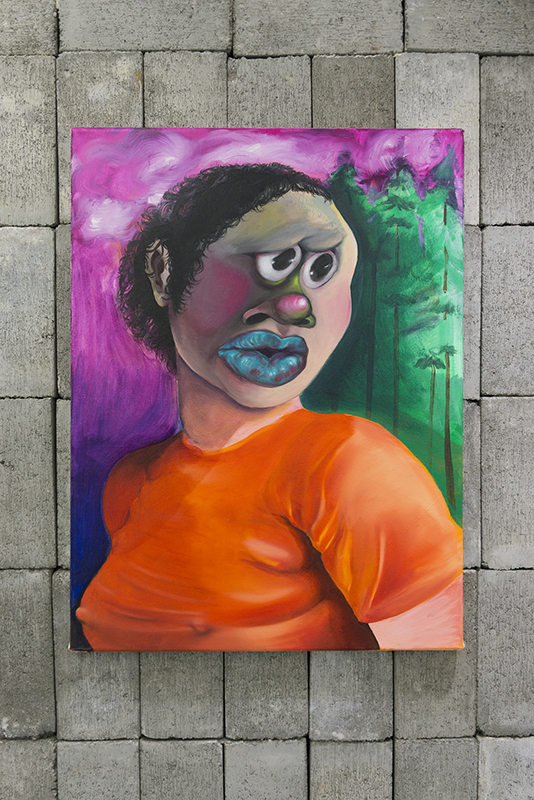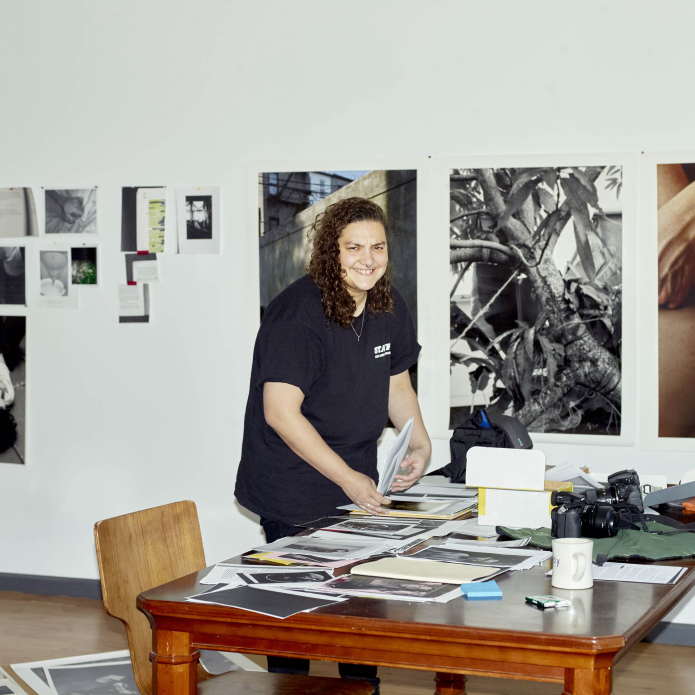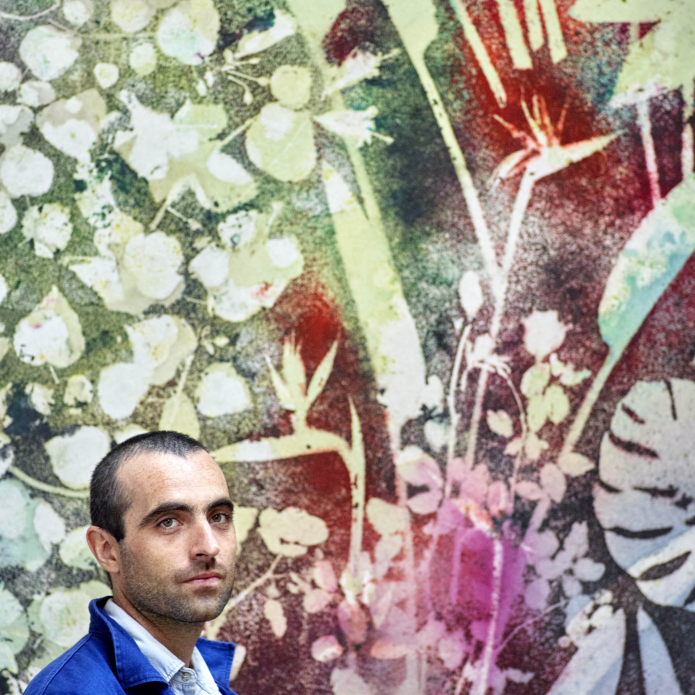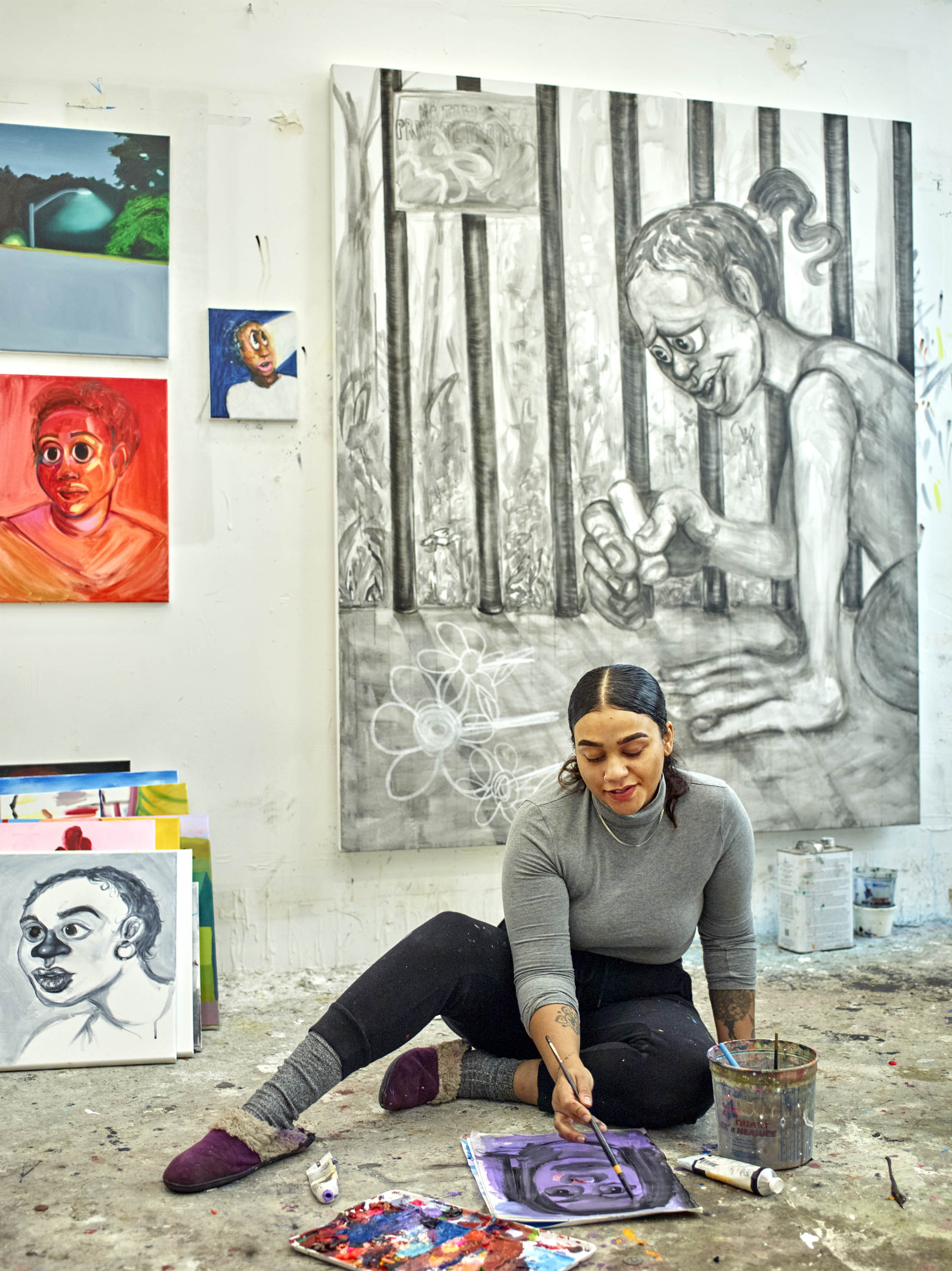
Cheyenne Julien’s portraits present figures with exaggerated, dreamlike features who are often forced to grapple with the prejudices inflicted on black and brown individuals. Their eyes resemble liquid pools, frozen in terror or sedate contemplation, yet there are also expressions of love and playfulness. Julien does not paint from reference, but finds context probing past experiences in order to understand more about her own life. “My work is based on personal narratives. Race is something that is inherent in all of my painting, but some works represent it more overtly than others. I think there is power in clarity, and I also think there’s power in nuance,” Julien says.
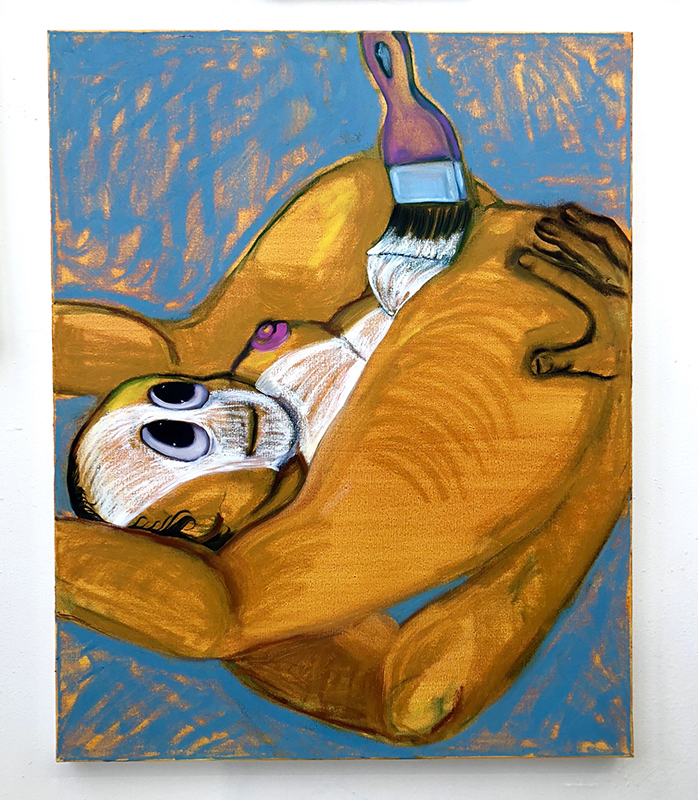
Two particularly striking paintings appeared this year in her two-person show at Chapter New York. Morning Cigarette shows a control over color that the artist is newly demonstrating. In the work, a red-hued woman sits smoking, head in hand, resolved to the challenges of the day. The vacant space created by her black silhouette contrasts with a beautiful purple, leaving the viewer feeling depleted but absorbed in the morning meditation. Night Session reveals a figure on her back, depicted in black tones and frozen while a distinctly white male hand-paints a white stripe over her body. “Whenever I make something in monochrome it feels necessary, black and white says what the image is.” For Julien, color is still decorative but beginning to play a larger role. It’s works like these that led Julien to be a recipient of the 2018 Rema Hort Mann Foundation Grant. A honor not lost on her as she recounts growing up in the Bronx and the capacity art has to change lives. “I think about the power of art education when I think about art’s power, and its potential to heal a community.”
